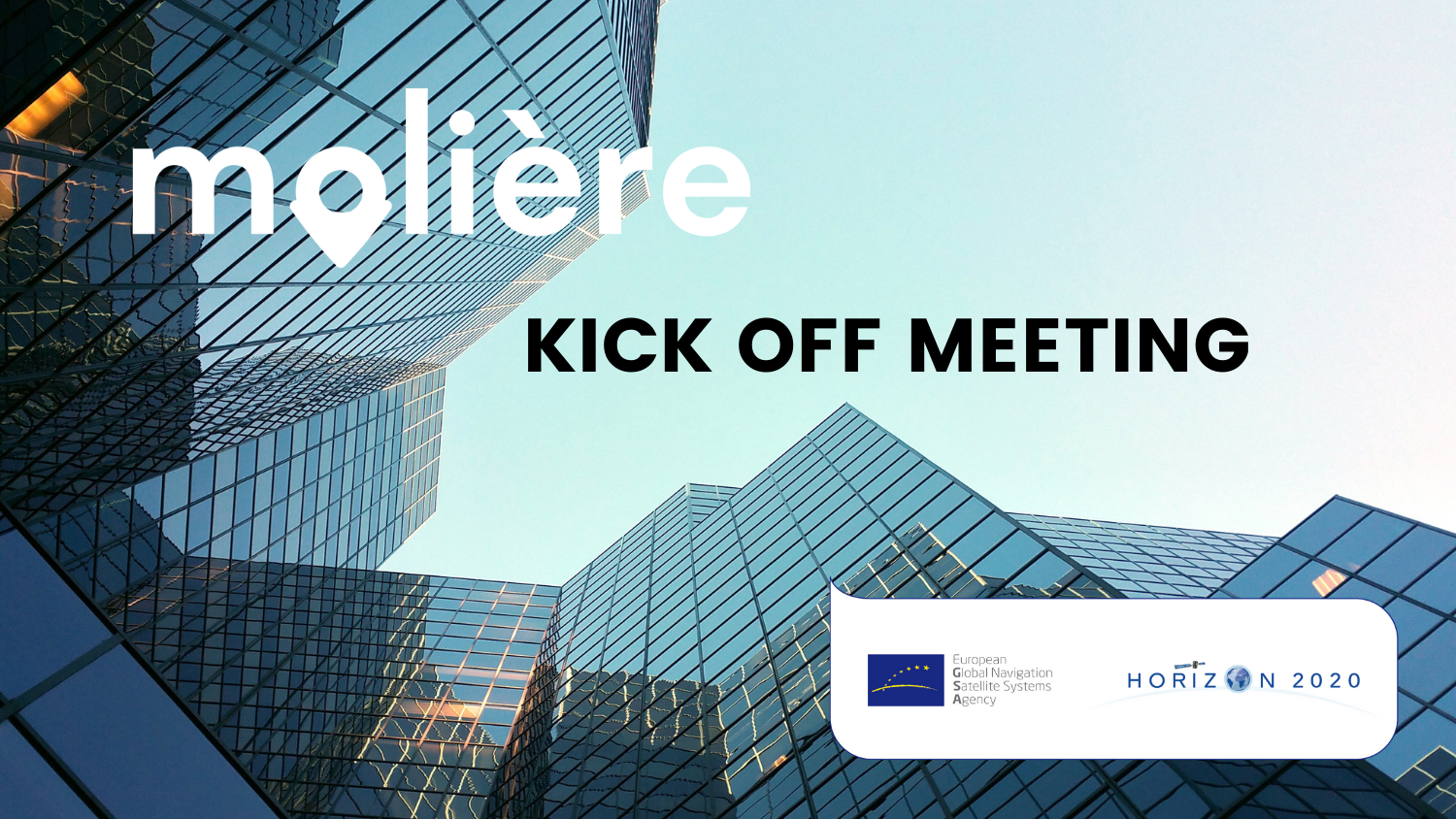- Molière will implement a MaaS platform that will integrate the evaluation of the journey quality experienced by users using geo-location data provided by GALILEO and underpinned by Blockchain technology.
- Within the EU Horizon 2020 programme, Molière project has received funding of 1.9M from the European Global Navigation Satellite Systems Agency under grant agreement No 101004275.
The new GSA project was launched through a virtual meeting on 9 December 2020 between eight project partners from three European countries (Belgium, Italy and Spain). Molière ambitions to be an influential project in the mobility field in how it will help operators, mobility ecosystem partners, and cities open up mobility-related data. The project will strive to help these actors share and cross-reference data in a simple yet powerful way. While some may think that transport data are a niche resource for highly technical experts, Molière will facilitate access and use, providing a strong benefit for all.
Molière will exploit the full potential of mobility-related data from the combination of the GALILEO Satellite Navigation System, and the emerging blockchain and Distributed Ledger Technologies (DLT), where GALILEO will provide geo-location, and blockchain technologies will manage transport transactions at very low costs, unlocking new avenues of value, and so contributing to break mobility silos. Molière aims to develop, test, demonstrate, and exploit the full potential from the combination of the GALILEO Satellite Navigation System, with its authenticated positioning signal, its enhanced geo-positioning capabilities (better accuracy, more reliable signal), and the emerging blockchain and Distributed Ledger Technologies, building on their immutable, decentralised, and secure characteristics. Molière will deliver against the EU’s major policy goals of Open innovation, Open science and Open to the world (three O’s), while addressing overarching goals as regards road safety and sustainable transportation.
The Molière Project is funded within the EU Horizon 2020 programme as a 24 months project, with the overall funding of 1,9M. The project has received funding from the European Global Navigation Satellite Systems Agency under grant agreement No 101004275.
On the Kick-off meeting, the partner organisations planned and prepared detailed framework of the activities and the strategic partnership and agreed on common goals and results for the project. The partners discussed and talked through the various parts of this long-term project, including research, hackathon activities, dissemination of the results, and evaluation of the activities.
One of the first Molière initiates are to create an Advisory board with external experts, followed by the first Molière-Hackathon, allowing the young and creative generation to develop innovative solutions, related to blockchain technology and geolocation data.
More about the Molière project : http://moliere-project.eu
BACKGROUND
About GSA
The GSA manages public interests related to European Global Navigation Satellite Systems (GNSS) programs, European Geostationary Navigation Overlay Systems (EGNOS), and Galileo. Galileo provides improved positioning and timing information with significant positive implications for many European services and users. Thanks to the multi-constellation of receivers that Galileo adds to, users can now know their exact position with greater precision. Galileo’s dual-frequency capability offers significant advantages in terms of achievable accuracy, but also in terms of improved resistance to jamming. The products that people use every day, from the GPS in their car to a mobile phone, benefit from the increased accuracy that Galileo provides. Galileo helps make Europe’s roads and railways safer and more efficient. Galileo boosts European innovation, contributing to the creation of many new products and services, creating jobs, and allowing Europe to own a greater share of the global market for added value services. For more information visit https://www.gsa.europa.eu/



